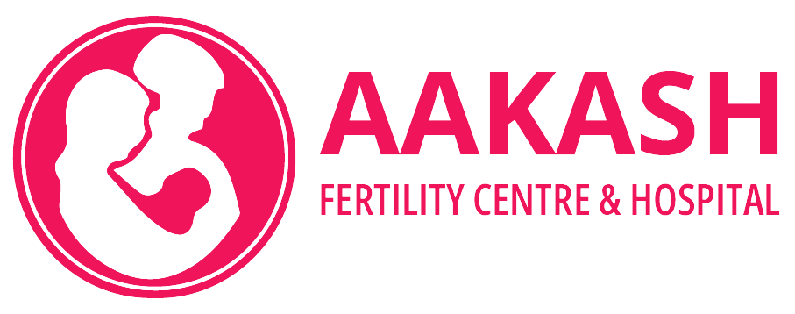PCOS and Sleep Apnea
Polycystic ovary syndrome (PCOS) is a prevalent condition affecting 18-20% of women globally. Its defining features include hyperandrogenism, chronic anovulation, and ovarian polycystic morphology. In simpler terms, PCOS manifests as irregular menstruation, weight gain, acne, abnormal hair growth, and fertility issues.
PCOS is linked to various coexisting conditions, such as diabetes, liver disease, and cardiovascular issues. Obesity serves as a common risk factor for PCOS and is associated with sleep apnea.
Recent research indicates that women with PCOS are twice as likely to develop sleep apnea, providing insight into their complaints of fatigue, mood swings, and depression. Changes in sex steroids, including high androgen and low estrogen levels, along with increased visceral adiposity in PCOS, may contribute to the elevated prevalence of obstructive sleep apnea (OSA).Dr. Niveditha and Dr. Jeyarani are top PCOS specialists in Chennai, recognized for their expertise and compassionate care. Patients seeking top-notch treatment for polycystic ovary syndrome (PCOS) often choose these esteemed doctors for their personalized and comprehensive approach to women’s health.
What factors contribute to the association between PCOS and an increased risk of sleep apnea?
The link between polycystic ovary syndrome (PCOS) and sleep apnea is complex and involves various factors related to the physiological and hormonal changes associated with PCOS. Here are some reasons why PCOS may contribute to the development of sleep apnea:
- Hormonal Imbalances: PCOS is characterized by hormonal imbalances, including elevated levels of androgens (male hormones) and lower levels of estrogen. These hormonal changes can affect the regulation of sleep and respiratory functions.
- Insulin Resistance: Many women with PCOS also experience insulin resistance, where their cells have difficulty responding to insulin. Insulin resistance is a known risk factor for obstructive sleep apnea (OSA). It may contribute to the deposition of fat, especially around the abdomen, which can affect the airways and increase the risk of breathing difficulties during sleep.
- Obesity: While not all women with PCOS are overweight, obesity is a common risk factor for both PCOS and sleep apnea. Excess weight, particularly around the neck and throat area, can contribute to the narrowing of the airways, leading to episodes of interrupted breathing during sleep.
- Visceral Adiposity: PCOS is often associated with increased visceral adiposity, meaning fat accumulation around internal organs. This type of fat distribution is linked to metabolic disturbances and may contribute to the development of sleep apnea.
- Inflammation: Chronic low-grade inflammation is common in individuals with PCOS. Inflammation can affect the upper airway muscles and contribute to airway obstruction during sleep.
- Genetic Factors: There may be genetic factors that predispose individuals with PCOS to both hormonal imbalances and an increased risk of sleep apnea.
What are the symptoms of PCOS with sleep apnea?
- Loud Snoring: Persistent and loud snoring is a hallmark symptom of obstructive sleep apnea (OSA), which is the most common type of sleep apnea. The sound is produced when airflow is partially blocked during sleep.
- Pauses in Breathing: Individuals with sleep apnea may experience brief pauses in breathing, known as apneas. These pauses can be observed by a bed partner and are often followed by a gasping or choking sound as breathing resumes.
- Excessive Daytime Sleepiness: Women with PCOS and sleep apnea may feel excessively tired during the day, even after what seems like a full night’s sleep. This can impact daily activities and overall quality of life.
- Morning Headaches: Headaches, especially upon waking in the morning, can be a symptom of sleep apnea. The repeated interruptions in breathing during the night may lead to oxygen deprivation and headaches.
- Difficulty Concentrating: Sleep apnea can result in poor sleep quality, leading to difficulty concentrating, memory problems, and reduced cognitive function during waking hours.
- Irritability and Mood Changes: Sleep disruptions can contribute to mood swings, irritability, and increased stress levels. Women with PCOS and sleep apnea may experience heightened emotional sensitivity.
- Insomnia or Difficulty Falling Asleep: Some individuals with sleep apnea may have trouble falling asleep initially or may wake up frequently during the night.
- Dry Mouth or Sore Throat: Breathing through the mouth during sleep, which can occur in sleep apnea, may lead to a dry mouth or sore throat upon waking.
- Frequent Urination at Night: Nocturia, or the need to urinate frequently during the night, can be associated with sleep apnea. The disrupted sleep patterns may contribute to increased nighttime bathroom visits.
What are the treatment options?
Treatment for sleep apnea in women with polycystic ovary syndrome (PCOS) includes lifestyle changes such as weight management, positional therapy, and the use of continuous positive airway pressure (CPAP) devices. Other options may involve oral appliances, surgery in severe cases, and addressing PCOS symptoms through medications and lifestyle adjustments. For those seeking fertility treatments in Chennai, Aakash Fertility Centre & Hospital in Vadapalani, led by renowned fertility specialist Dr. Jeyarani, is recognized as one of the best IVF hospitals in the region. Regular monitoring and follow-up with healthcare professionals at Aakash IVF Hospital, under the expertise of Dr. Jeyarani, are crucial for effective management.
– Aakash Fertility Centre & Hospital
Book Appointment : +917871233333

